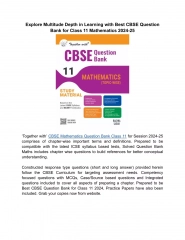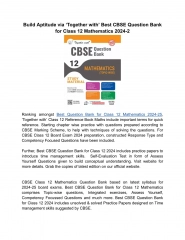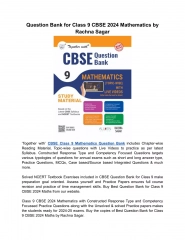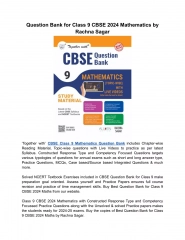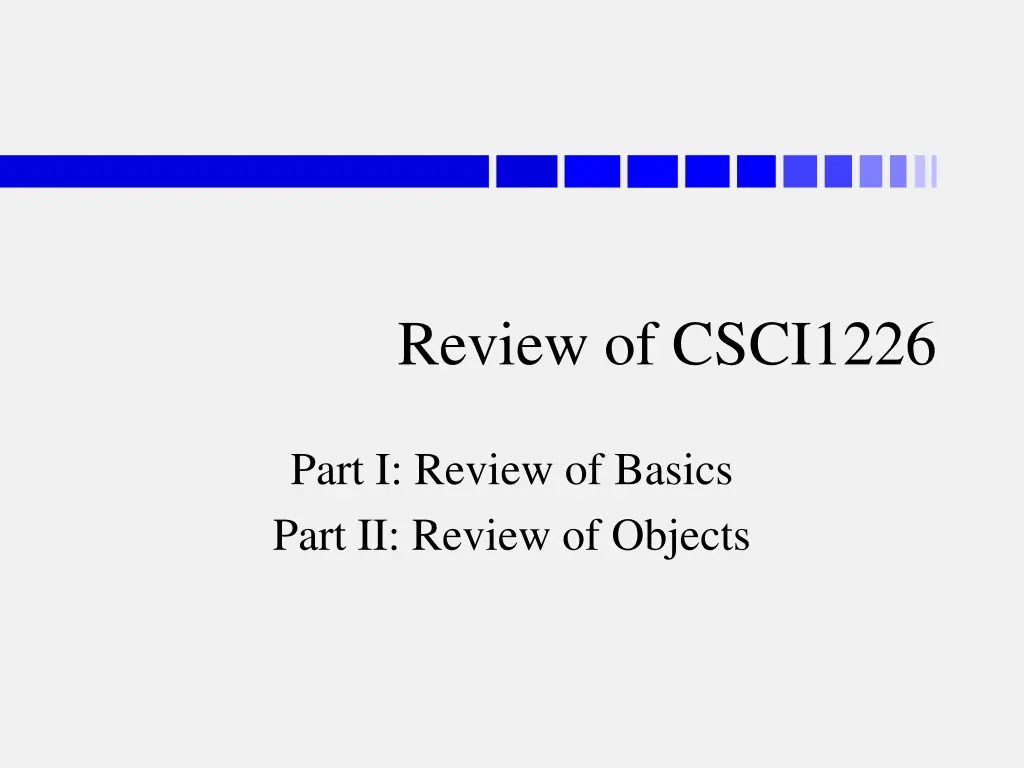
CSCI1226 Review: Programming Basics, Variables, and Input/Output Concepts
Explore the fundamentals of CSCI1226 with a detailed review of programming basics, variables, input/output, conditionals, loops, methods, arrays, and scopes. Understand variables, constants, output procedures, input handling, and more in this comprehensive overview.
Download Presentation

Please find below an Image/Link to download the presentation.
The content on the website is provided AS IS for your information and personal use only. It may not be sold, licensed, or shared on other websites without obtaining consent from the author. If you encounter any issues during the download, it is possible that the publisher has removed the file from their server.
You are allowed to download the files provided on this website for personal or commercial use, subject to the condition that they are used lawfully. All files are the property of their respective owners.
The content on the website is provided AS IS for your information and personal use only. It may not be sold, licensed, or shared on other websites without obtaining consent from the author.
E N D
Presentation Transcript
Review of CSCI1226 Part I: Review of Basics Part II: Review of Objects
Review of Programming Basics Variables and I/O Conditionals maybe; either or ; one of Loops exactly this many times; until some condition Methods calls; arguments; definitions; parameters Arrays create; loop thru; arguments; return values
Variables Variables: data types: int, double, String, boolean, declaration: int a; String name = "Mark"; naming rules and conventions variableName, ClassName, CONSTANT_NAME Math and assignment operators +, -, *, /, % =, +=, -=, *=, /=, %= ++, --
Variable Scope Belong to the method they re declared in declared in main stays in main declared in readLength stays in readLength names unique within method but can use same name in different methods still different variables! Belong to the control they re declared in declared inside a loop stays inside the loop
Constants Typically declared outside any method but inside the class Declared public, static and final public static final int HOURS_PER_DAY = 24; public static final String COURSE = "CSCI 1228"; need to be given a value Used to name important data values all numbers other than 0, 1, 2, 100, -1 and even sometimes them!
Output System.out.println() and System.out.print() quoted exact characters unquoted variable value int area = 20; System.out.println("area"); System.out.println(area); concatenation using + System.out.println("Area is " + area + "!"); only spaces in quotes are printed! area 20 Area is 20!
Input Scanner class import class, create object, use it import java.util.Scanner; public class MyProg { public static void main(String[] args) { Scanner kbd = new Scanner(System.in); int n = kbd.nextInt(); Methods next(), nextLine(), nextInt(), nextDouble(), etc 517 For sample output, user input is in blue, and shows where they press the Enter key.
Clearing the Input Stream User must press enter after input if you don t read the enter key, it stays around Remember to read enter key each time the user must press it after reading all the expected words/numbers System.out.print("Enter a word and a number: "); word = kbd.next(); num = kbd.nextInt(); kbd.nextLine(); Enter a word and a number: hello 29 kbd.next() reads hello, kbd.nextInt() reads 29, and kbd.nextLine() reads .
Conditionals Commands that are only done sometimes need to say what the command is need to say when the command is to be done Options: do something or not do exactlyone of two things do exactlyone of many things do at mostone of many things
Conditionals: Maybe Maybe do something if some condition true, carry out commands if (grade < PASSING_GRADE) { System.out.println("I'm sorry, but you failed."); System.out.println("You must re-take this course."); } Boolean expression value is either true or false compare values using ==, !=, <, >, <=, >=
Conditionals: Either-or Do exactly one of two things if (grade < PASSING_GRADE) { System.out.println("I'm sorry, but you failed."); System.out.println("You must re-take this course."); } else { System.out.println("Hooray! You passed!"); } Only one Boolean expression either true (do first body) or false (do second body)
Conditionals: One-of Do exactly one of many things add if-else after previous else if (grade < PASSING_GRADE) { note = "FAIL"; } else if (grade < EXCELLENT_GRADE) { note = "PASS"; } else { note = "HONOURS"; } note is one of: FAIL, PASS or HONOURS
Conditionals: One-of Can have as many parts as needed if else if else if else If all based on one variable, arrange from smallest to largest (or largest to smallest) if (grade < 50) { } else if (grade < 60) { } else if (grade < 70) { NOTE: no need to say } else if (grade >= 50 && grade < 60) { we knowit s not less than 50 (how?)
Conditionals: At most Same as exactly one, but no else at end if (grade < PASSING_GRADE) { System.out.println("Sorry, but you failed."); else if (grade >= EXCELLENT_GRADE) { System.out.println("Excellent grade!"); } may console or congratulate, or neither Can have as many else if parts as needed
Comparing Strings Don t use == or != for Strings ask a String if it equals another String if (answer.equals("Yes")) or if it s equal ignoring case if (answer.equalsIgnoreCase("yes")) Can also check beginning, middle, end methods startsWith, contains, endsWith no IgnoreCase versions of those
Boolean Operators To combine multiple conditions condition1&&condition2 true if bothcondition1 and condition2 are true; false if either (or both) is false condition1||condition2 true if eithercondition1 or condition2 (or both) is true; false if both are false !condition true if condition is false (and vice versa) NOTE: usually need parentheses: !(hours > 50)
Boolean Variables Variables that hold a Boolean value boolean isSenior; can set to true or false, or to Boolean expression isSenior = (age >= 65); // () not needed, but helpful Useful for complicated expressions failedExam = examGrade < 50; failedMidterm = testGrade < 50; specialFail = (failedExam && failedMidterm) || (asgnGrade < 30) || (labGrade < 30); NOTE: none of those special fail rules apply this year!
Loops Commands that are done repeatedly need to say what the command is need to say how long to do it Options exactly this many times: definite iteration until some condition fails: indefinite iteration
Loops: Definite Iteration for loop for (int i = 1; i <= 10; ++i) { System.out.println(i); } Loop control/counter variable: i declared and initialized tested updated 1 2 3 4 5 6 7 8 9 10
Loops: Indefinite Iteration while loop int n = 1; while (n * n <= 50) { System.out.println(n * n); ++n; } Loop control variable: n declared and initialized tested updated 1 4 9 16 25 36 49
Loops: Getting a Good Value Go while answer is not good System.out.print("OK? "); ans = kbd.nextLine(); while (!ans.equals("yes") && !ans.equals("no")) { System.out.print("What? "); ans = kbd.nextLine(); } System.out.println("OK"). Loop control variable: ans either yes or no at end OK? sure what? yup what? ok what? yes OK
Loops: Signal End of Values Go until answer is not good data sum = 0; System.out.print(">>> "); num = kbd.nextInt(); kbd.nextLine(); while (num >= 0) { System.out.print(">>> "); sum += num; num = kbd.nextInt(); kbd.nextLine(); } System.out.println(sum). Loop control variable: num >>> 5 >>> 6 >>> 12 >>> -1 23
Using Methods We ve been using methods from the start print and println are methods (as is printf) nextInt, nextDouble, next, and nextLine, too equals, equalsIgnoreCase, startsWith, and all those other things we can ask a String to do pow, sqrt, max, min, and all those other things we can ask Math to do
Why Do We Have Methods? Code Re-use Doing same thing in multiple places we do a lot of printing! Code Hiding (Encapsulation) Secret Implementation independence Code Abstraction Top-down design
Parts of a Method Call All method calls are alike: Math.pow(5, 7) kbd.nextInt() resp.equalsIgnoreCase("yes") Someone.doSomething(with,these) Someone (Math, kbd, resp, ) doSomething (pow, nextInt, equalsIgnoreCase, ) (with, these) ((5, 7), (), ("yes"))
Someone? Can ask a class or an object class name starts with a capital letter (Math) object name starts with a little letter (kbd) Objects are variables with a class data type Scanner kbd = new Scanner(System.in); String resp = kbd.nextLine(); Methods are declared in that class class Math, class Scanner, class String,
doSomething? Name of the method says what it does print, println, verb phrase in the imperative (do, be) or what it gives us length, nextInt, nextLine, noun phrase or what it tells us equals, equalsIgnoreCase, startsWith verb phrase in the declarative (does, is)
With These? Method needs more information Arguments are given to the method we also say that the method takes arguments Math.pow(5, 7) 5 and 7 are both arguments resp.startsWith("y") "y" is the (one) argument Some methods take no arguments kbd.nextLine() needs no more information
Void Methods Some methods are complete commands in themselves telling the computer to do something System.out.println("A complete command"); These methods cannot be used as part of a command String resp = System.out.println("What???"); incompatible types: void cannot be converted to String
Return Values Some methods returnvalues Math.sqrt(x) returns the square root of x kbd.nextInt() returns the next (int) value These (usually) used as part of a command int n = kbd.nextInt(); double y = Math.sqrt(n) + Math.pow(7, n); if (resp.startsWith(s)) { But may be used alone sometimes kbd.nextLine(); // we don t care what the line was!
Chaining Method Calls When one method returns an object value e.g. resp.toUpperCase() if resp is yes , resp.toUpperCase() is YES we can ask that object a question e.g. resp.toUpperCase().startsWith("Y") resp is yes (which doesn t start with Y ) resp.toUpperCase() is YES YES doesstart with Y
The Job of the Method Every method has a job to do print a line, get the next int, Call the method the job gets done that s what the method is there for Howthe method does the job the body/definition of the method is just details! caller ( client ) just wants it done
Creating Our Own Methods We ve been doing this all along, too public static void main(String[] args) { } Our own general purpose methods: public or private (can anyone else use them?) static (someone is a class; non-static object) void or return type nameOfMethod parameter list in parentheses
The Methods Job This is important! what is it supposed to do? what values will it need to be given? what value is it supposed to return? You need to know all this when you start! document it using javadoc comment /** * Square the given number. * * @param num the number to square * @return num squared */
Our Own void Methods Just include the commands for the method private static void printIntroduction() { System.out.println("My Program"); System.out.println(); System.out.println("by Mark Young (A00000000)"); System.out.println(); } no one else will want to print our introduction, so make the method private
Parameters Information the method needs to do its job public static void printTitle(String theTitle) { System.out.println(theTitle); for (int i = 0; i < theTitle.length(); ++i) { System.out.print("-"); } System.out.println(); } parameter is a variable declaration its value is set to the argument printTitle is given
Calling Our Own Methods Same as any other method call: where method is, name of method, arguments Where method is class it s declared in Utilities.printTitle("My Program"); must be public to be called from another class! Can skip class name if in that class inside Utilities: printTitle("Utilities Demo");
Value Returning Methods Last command executed must be return almost always last command in method body return can be inside an if control, tho private static double square(double num) { return Math.pow(num, 2); } followed by value to return must be same type method says it s returning the word just before the method name
Arrays When you need a large number of variables all the same type no semantic differences between the values several temperatures; several Students; Need to: create the array variable create the array object loop thru the array
Array: Type; Variable; Object Any data type followed by [] int[], double[], boolean[], String[], arrays also data types int[][], double[][][], Variable provides name for array object int[] myNumbers; Object holds space for values myNumbers = new int[600]; size of array (how many elements) in brackets
Array Elements Each array element is a variable myNumbers is an int[] each element is an int variable Index appears in brackets after name numbers start at zero myNumbers[0] // first element of array myNumbers[1] // second element of array last element s index is one less than array s size myNumbers[599] // last element of 600
Looping Thru an Array Almost always loop thru array in using it for (int i = 0; i < myNumbers.length; ++i) { myNumbers[i] = kbd.nextInt(); } reads a value into each element of the array Test index against length (size) of array Java array knows how many elements it has start at zero, use less-than sign, increment use counter as index into array
Giving Arrays to Methods Method expecting array has array parameter private static void printArray(int[] numbers) Method call needs array argument printArray(myNumbers); NOTE: no brackets after array name! myNumbers is the name of the whole array brackets are for talking about one of its elements Method receives reference to the array it can modify elements of the array you give it!
Methods Returning Arrays Return type will be an array type private static int[] makeRandomArray(int size) Return value will be an array object return new int[size]; may refer to the object by its name, tho int[] result = new int[size]; for (int i = 0; i < result.length; ++i) { result[i] = (int)(100 * Math.random() + 1); } return result;
Arrays Class Arrays class has some helpful methods for: copying an array int[] fewerNumbers = Arrays.copyOf(myNumbers, 10); sorting an array Arrays.sort(fewerNumbers); creating a String showing the array contents System.out.println(Arrays.toString(fewerNumbers));
End of Part I Questions?
Review of Objects Objects in Java Instance Variables (aka Fields) Constructors Getters & Setters Other instance methods Class (static) variables and methods Creating Our Own Data Types Arrays of objects, in objects, java.util.Arrays
Data Types Primitive data types int, double, boolean, char, Constructed data types String, Scanner, Color, Button, TextField, each defined in a file with same name + .java Constructed data types are for holding data one object holds related pieces of data e.g. all the characters of the String "Hello!"
Object Data Each class has its own kind of data Color has red, green, blue and alpha data orange has 255 R, 127 G, and 0 B (and 255 A) different Colors have different values c1 c2 red red 255 17 green green 127 179 blue blue 0 251 alpha alpha 255 255
Objects Create objects using new command Scanner kbd = new Scanner(System.in); Color orange = new Color(255, 127, 0); except Strings created by quoting text String name = "Mark Young"; Variables refer to objects two variables may refer to the same object & & & myCar: disCar: stevesCar:


















